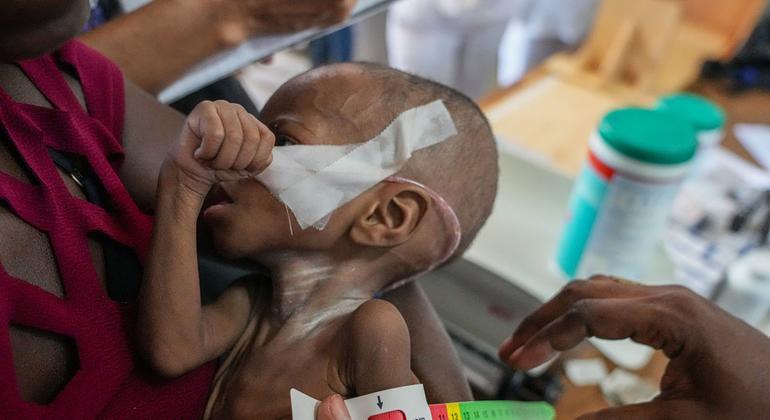In response, the World Health Organization (WHO) calls for 1.5 billion dollars through its 2025 Health Emergency Appeal to deliver life-saving health interventions worldwide.
The appeal, unveiled on Thursday by WHO Director-General Tedros Adhanom Ghebreyesus, outlines the urgent priorities to address 42 ongoing health emergencies, including 17 that require immediate and coordinated action.
“Conflicts, outbreaks, climate-related disasters and other emergencies are no longer isolated or occasional – they are relentless, overlapping and intensifyingTedros said.
“This appeal is not just about raising resources; it is about enabling WHO to save livesprotect the right to health and give hope where there is often none,” he added.
A world in crisis
The appeal comes at a time when the WHO has recorded unprecedented levels of attacks on healthcare infrastructure.
Only in 2024 was there 1,515 attacks on health facilities in 15 countriesresulting in hundreds of deaths and severely disrupting critical services.
WHO’s response spans some of the world’s most fragile settings, including the Democratic Republic of the Congo, the Occupied Palestinian Territory, Sudan and Ukraine.
In these regions, WHO provides emergency medical care, supports vaccination campaigns to prevent disease outbreaks, offers mental health services to traumatized communities and addresses malnutrition and maternal health needs.
In Ukraine, WHO has installed modular clinics to replace destroyed health facilities, ensuring displaced populations continue to receive needed care.
In Gaza, over one million polio vaccines were administered by 2024 despite significant logistical and security challenges, prevent a catastrophic outbreak among children.
Building resilience
Beyond immediate relief, the organization focuses on empowering “communities to protect themselves, prioritize justice and build a legacy of preparedness,” Tedros explained.
By addressing the root causes and ensuring access to health care even in the most challenging environments, WHO seeks to break the cycle of vulnerability and build a stronger foundation for global health security.
Supporting the Health Emergency Appeal is not only about addressing immediate crises, but also about securing the future of global health.
Protects health, saves lives
Tedros framed the appeal as a call for global solidarity and urged donors to act decisively.
In 2024, funds for the health sector in humanitarian efforts met only 40 percent of the identified needsforcing difficult decisions about who could be reached.
Without immediate financial support, millions will continue to be at risk, and the world’s most vulnerable populations will bear the brunt of this shortfall.
The appeal is an investment in justice, resilience and the common principle that health is a basic human right.
With the funds raised, WHO aims to continue its vital work on the frontlines, from providing critical care in conflict zones to addressing the health impacts of climate disasters and ensuring that no one is left behind.



